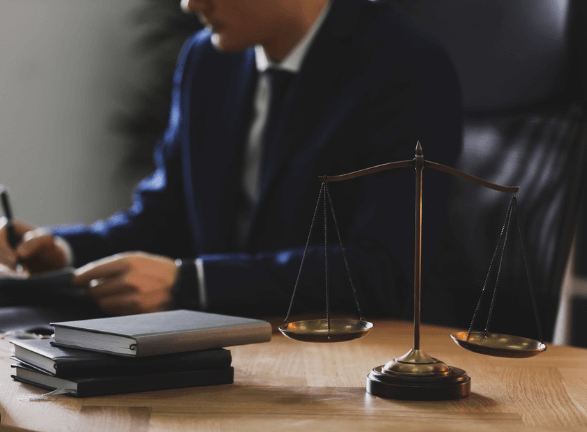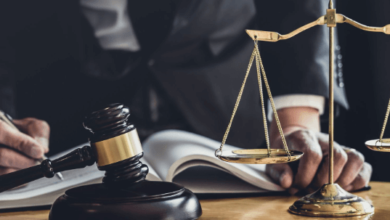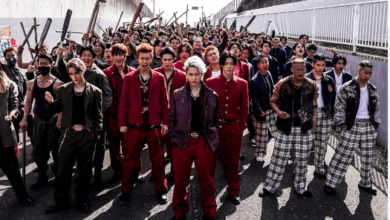Defending Against Human Trafficking Charges: The Role of a Prostitution and Solicitation Lawyer

Human trafficking charges are among the most severe criminal accusations, carrying profound social and legal implications. These charges often involve complex elements, such as forced labor or exploitation, and can encompass related allegations of prostitution and solicitation.
Defendants facing these accusations may feel overwhelmed by the intricacies of human trafficking laws and the potential consequences. Fortunately, an experienced Boulder, CO Prostitution & Solicitation Lawyer can provide guidance, defense strategies, and crucial support throughout the legal process.
Understanding Human Trafficking Laws
Human trafficking laws vary across jurisdictions but generally aim to combat the exploitation of vulnerable individuals. In the U.S., human trafficking is typically defined as compelling someone into labor, sexual acts, or other forms of exploitation through force, fraud, or coercion.
Federal and state laws impose severe penalties for trafficking, including lengthy prison sentences, fines, and a permanent criminal record. A human trafficking charge may be brought against anyone involved in facilitating, recruiting, or benefiting from exploitative acts.
In some cases, those accused of human trafficking may face additional charges related to prostitution and solicitation, especially if alleged victims were forced into sex work. Understanding the legal distinctions between human trafficking, prostitution, and solicitation is essential for a strong defense.
See also: Defending Against Child Pornography Charges: Understanding the Role of a Specialized Lawyer
Definitions of Prostitution and Solicitation
Prostitution is generally defined as exchanging sexual acts for payment, while solicitation refers to seeking or offering to engage in such acts. While prostitution and solicitation laws are focused on specific transactions, human trafficking laws cover a broader spectrum, including the coercion or manipulation of individuals for sexual exploitation.
Laws on prostitution and solicitation vary by state, and penalties may range from fines to jail time. These offenses, though separate from trafficking, can complicate cases where defendants are accused of forcing others into prostitution. When someone is charged with trafficking-related offenses alongside prostitution or solicitation, they may face heightened scrutiny in the legal process and a more challenging path to acquittal.
Key Differences in Laws and Penalties
Human trafficking, prostitution, and solicitation are often legally distinct, but they can intersect in cases involving coercion or exploitation. Take a look:
- Scope of Offense: Human trafficking involves forced labor or exploitation, while prostitution and solicitation focus on consensual, though often illegal, transactions.
- Severity of Penalties: Human trafficking carries some of the highest penalties, often including decades-long prison sentences. By contrast, prostitution and solicitation charges, although serious, typically involve shorter sentences or fines.
- Legal Process: Trafficking cases may involve multiple jurisdictions and federal agencies, making the legal process lengthy and complicated. Meanwhile, prostitution and solicitation cases are usually handled at the local or state level.
These differences underscore the importance of an experienced Boulder, CO Prostitution & Solicitation Lawyer who understands how to address charges that may include both trafficking and related offenses. Having a lawyer knowledgeable in these distinctions can significantly impact the outcome of the case.
Impact on Defendants and the Justice System
Human trafficking charges have severe consequences for defendants, who may face social stigma, employment challenges, and financial strain from ongoing legal battles. For some, even the accusation of being involved in trafficking can cause irreparable damage to personal and professional lives.
Moreover, the justice system itself can struggle under the weight of trafficking cases, which often require coordination among multiple agencies and extended investigation periods. Due to the high stakes, there is often a presumption of guilt in trafficking cases, which complicates defense strategies for defendants facing such allegations. Judges and juries may have preconceived notions about trafficking, which can lead to biased decisions without thorough consideration of all evidence and context.
Common Defenses Against Human Trafficking Charges
Defending against human trafficking charges requires an approach tailored to the specific circumstances of each case. Common defense strategies include:
- Lack of Knowledge or Intent: Some defendants may unknowingly become involved in trafficking operations, especially if they were unaware of exploitative practices or coerced participation.
- Misidentification of Actions: In some cases, the defendant’s actions may have been misinterpreted as trafficking when they were unrelated to coercion or exploitation. This often applies to cases involving consensual adult activities mischaracterized as trafficking.
- Coercion or Duress: Defendants may argue that they were coerced or threatened into participating in trafficking activities, making them victims rather than perpetrators. This defense acknowledges the complex dynamics of exploitation that can also trap defendants.
- Insufficient Evidence: Since trafficking cases require substantial evidence, a lack of concrete proof can be a viable defense. A lawyer may argue that the evidence is circumstantial or insufficient to establish guilt beyond a reasonable doubt.
- Constitutional Violations: If evidence was gathered unlawfully, it might be dismissed in court. A skilled attorney will examine the methods used to collect evidence and, if necessary, challenge any constitutional breaches.
An experienced lawyer will carefully evaluate the circumstances of each case to determine the best defense strategy. Tailoring a defense to the defendant’s unique situation can make a crucial difference in achieving a favorable outcome.
The Importance of an Experienced Lawyer – Get in Touch
A skilled attorney understands the complexities of trafficking laws, local statutes, and potential penalties. They provide support in gathering evidence, forming defense strategies, and navigating the complexities of the criminal justice system.
The lawyer’s role goes beyond the courtroom—they help protect defendants’ rights, build strong defenses, and offer essential guidance through each stage of the case. An experienced lawyer is familiar with the nuances of trafficking cases and can leverage their knowledge to protect clients from unjust outcomes or overly harsh sentencing.
Hiring an experienced lawyer at the earliest opportunity can make a significant difference in the case. This proactive approach allows the attorney to work closely with the defendant, conduct a thorough investigation, and create a defense strategy that considers all available evidence and testimony.
Conclusion
Human trafficking charges are serious, life-altering accusations that require a strong and knowledgeable defense. These cases involve a complex interplay of laws, including those concerning prostitution and solicitation, making it essential to understand the specific charges and potential defenses available. While the legal system imposes harsh penalties for trafficking-related offenses, defendants have rights and are entitled to a fair defense.
For those facing these accusations, hiring a Boulder, CO Prostitution & Solicitation Lawyer can provide the guidance and legal support necessary to navigate the intricate criminal justice system. Through experience, understanding, and a dedicated approach to the case, a lawyer from Dawson Law Office can make a critical difference in achieving justice and safeguarding a defendant’s future.



